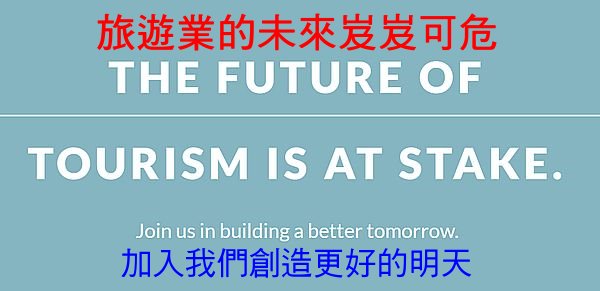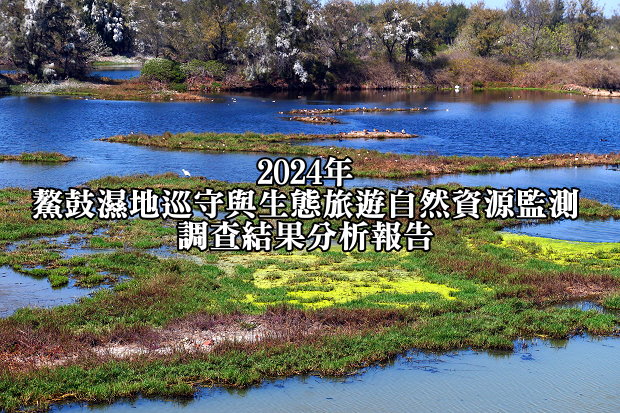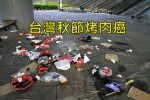「旅遊業明天會更好聯盟」(Future of Tourism Coalition)由六個非政府組織組成,分別是「負責任旅行中心」(Center for Responsible Travel)、旅遊地管理中心(Destination Stewardship Center)、綠色旅遊地基金會(Green Destinations)、國際永續旅行協會(Sustainable Travel International)、在意旅遊聯盟(Tourism Cares)、旅行基金會(Travel Foundation)。該聯盟認為世界上許多寶貴的旅遊地因幾十年來毫無節制、不斷增長的觀光發展,而面臨環境、文化、社會和財政方面的危機,將使旅遊業有個不穩定和不確定的未來(Decades of unfettered growth in travel have put the world’s treasured places at risk – environmentally, culturally, socially, and financially. Now the tourism industry faces a precarious and uncertain future.)。該聯盟呼籲旅遊業必須有所改變,期使明天會更好,於是提出一套能讓旅遊業長期、可持續穩定成長的13項指導原則。

我以中英文並列將這13項指導原則之重點臚列於後,請參考:
![]()
1. 觀照整體環境
了解到多數旅遊業本質上涉及整個旅遊地各個層面,不僅觀乎旅行業務本身,還包括生態系統、自然資源、文化資產和傳統、社區、美學與基礎設施。
了解更多:https://www.futureoftourism.org/principle-1
1. See the whole picture
Recognize that most tourism by its nature involves the destination as a whole, not only industry businesses, but also its ecosystems, natural resources, cultural assets and traditions, communities, aesthetics, and built infrastructure.
2. 實踐永續旅遊標準
遵循全球永續旅遊理事會 (GSTC) 為產業和旅遊地制定公開且國際認可的實踐永續旅遊的最低標準。
了解更多:https://www.futureoftourism.org/principle-2
2. Use sustainability standards
Respect the publicly available, internationally approved minimum criteria for sustainable tourism practices maintained by the Global Sustainable Tourism Council (GSTC) for both industry and destinations.
3. 協同整合旅遊地管理
尋求透過政府、私部門和民間各種不同的社區組織平等參與,協同整合旅遊地管理架構來發展所有的旅遊業務。
了解更多:https://www.futureoftourism.org/principle-3
3. Collaborate in destination management
Seek to develop all tourism through a collaborative management structure with equal participation by government, the private sector, and civil society organizations that represent diversity in communities.
4. 重質不重量
以遊憩品質而非遊客數量為標的來管理旅遊發展,在提升旅遊體驗的同時保持旅遊地特色,造福當地社區。
了解更多:https://www.futureoftourism.org/principle-4
4. Choose quality over quantity
Manage tourism development based on quality of visitation, not quantity of visitors, so as to enhance the travel experience while sustaining the character of the destination and benefiting local communities.
5.收益公平分配
制定政策,避免旅遊地社區不平等的旅遊利益糾葛,最大幅度地讓社區保留旅遊收益,不讓外人全賺走。
了解更多:https://www.futureoftourism.org/principle-5
5. Demand fair income distribution
Set policies that counter unequal tourism benefits within destination communities that maximize retention of tourism revenues within those communities.
6.減輕旅遊業成本負擔
顧及稅收負擔、環境和社會影響,以及客觀可驗證的相關衝擊等所有的旅遊成本。 確保投資與優化社區和環境是正相關的連結。
了解更多:https://www.futureoftourism.org/principle-6
6. Reduce tourism’s burden
Account for all tourism costs in terms of local tax burdens, environmental and social impacts, and objectively verifiable disruption. Ensure investments are linked to optimizing net-positive impacts for communities and the environment.
7. 重新定義何謂經濟上的成功
與其專注 GDP的成長,更應青睞能夠具體展現旅遊地整體效益的指標,例如小型企業發展、營收分配以及強化可持續的在地供應鏈。
了解更多:https://www.futureoftourism.org/principle-7
7. Redefine economic success
Rather than raw contribution to growth in GDP, favor metrics that specify destination benefits such as small business development, distribution of incomes, and enhancement of sustainable local supply chains.
8. 減輕氣候影響
努力遵循公認且科學的減少溫室氣體排放的共識。 投資綠色基礎設施並迅速減少因旅遊產生的空中、海上和地面交通的排放。
了解更多:https://www.futureoftourism.org/principle-8
8. Mitigate climate impacts
Strive to follow accepted scientific consensus on needed reductions in greenhouse gas emissions. Invest in green infrastructure and a fast reduction in transport emissions involved in tourism – air, sea, and ground.
9. 循環利用資源
在疫情後安全條件許可下,旅遊業應停止使用一次性塑膠用品,轉而循環利用資源。
了解更多:https://www.futureoftourism.org/principle-9
9. Close the loop on resources
When post-pandemic safety allows, turn away from use of disposable plastics by tourism businesses, and transition to circular resource use.
10. 管制旅遊用地
將高容量度假村限制在集中發展的區域。 抑制度假村無節制地擴張佔據海岸、島嶼和山區,以保留地理特色、經濟多樣性、在地人的使用權及關鍵生態系統。
了解更多:https://www.futureoftourism.org/principle-10
10. Contain tourism’s land use
Limit high-occupancy resort tourism to concentrated areas. Discourage resort sprawl from taking over coasts, islands, and mountain areas, so as to retain geographical character, a diverse economy, local access, and critical ecosystems.
11. 客源多元化
除了國際觀光客外,還應鼓勵穩固的國民旅遊市場,這在面對危機時可能更具韌性,且提高了公民認可自然和文化遺產的價值。
了解更多:https://www.futureoftourism.org/principle-11
11. Diversify source markets
In addition to international visitation, encourage robust domestic tourism, which may be more resilient in the face of crises and raise citizens’ perceived value of their own natural and cultural heritage.
12.維護地方感
鼓勵保護與利用自然、景觀與文化資產的旅遊政策和商業實務。 保留並增強旅遊地的意象和獨特性。 旅遊地的多樣性是驅使人們旅行的誘因。
了解更多:https://www.futureoftourism.org/principle-12
12. Protect sense of place
Encourage tourism policies and business practices that protect and benefit natural, scenic, and cultural assets. Retain and enhance destination identity and distinctiveness. Diversity of place is the reason for travel.
13. 負責任地經營旅遊業務
採取激勵和獎勵措施,讓支持以上原則的旅遊和相關企業採取實際行動,並發展強大的本地供應鏈,以提供更高品質的產品和體驗。
了解更多:https://www.futureoftourism.org/principle-13
13. Operate business responsibly
Incentivize and reward tourism businesses and associated enterprises that support these principles through their actions and develop strong local supply chains that allow for higher quality products and experiences.








